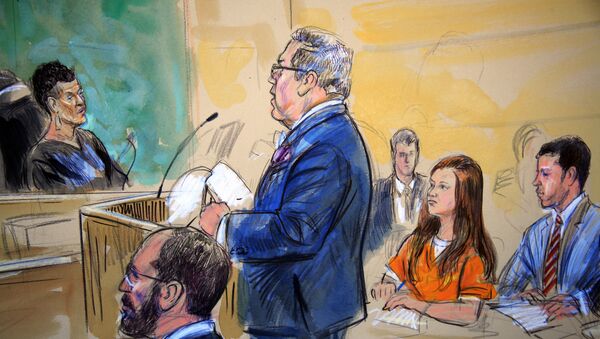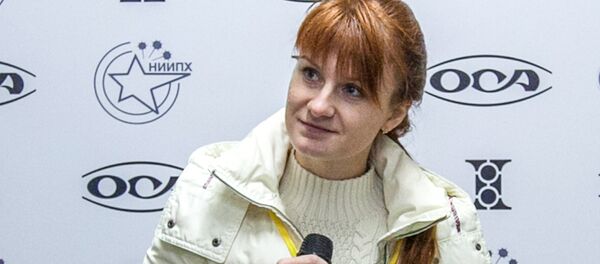According to Bloomberg, George D. O'Neill Jr., 68, an heir to the multi-billion Rockefeller clan's fortune, was among the American conservatives who allegedly helped Maria Butina, a Russian national accused of being a secret agent, build a secret line of communication between Russian officials and US conservatives.
Last February, more than a week after Donald Trump's inauguration, O'Neill hosted a private dinner in Washington, D.C. for a number of high-profile Russian officials attending the National Prayer Breakfast (an annual event for America's political and financial elite, hosted by the US president). The event brought Russian dignitaries together with two Republican lawmakers and other conservative figures.
READ MORE: US Prosecution Wants to Classify Most Evidence in Russian National Butina's Case
The details of the high-profile meeting were available in a brochure seen by Bloomberg. The date of the get-together, the outlet contends, corresponds with the information about a dinner mentioned in charges against Butina, which name "U.S. Person 2" as one of her contacts in the country.
Maria Butina, a recent American University graduate, was arrested in Washington DC on July 15 on charges of conspiracy and acting as an unregistered foreign agent together with Alexander Torshin, deputy governor of the Central Bank of Russia, to advance the country's interests using links with the National Rifle Association (NRA) and "friendship and dialogue dinners." Affidavits mentioned Butina's interaction and email communications with "US Person 1", an American political operative, and "US Person 2." Maria Butina denied the claims and is now being held in jail without bond until trial.
O'Neill, who has yet to comment on the claims, is a conservative opinion writer and an outspoken advocate of closer relations with Russia. In an op-ed piece for The American Conservative dated July 9, he praised the Helsinki summit between Trump and Putin as an "overdue opportunity for the American president's next bold peace initiative" and argued that Russia could be a "constructive partner."



